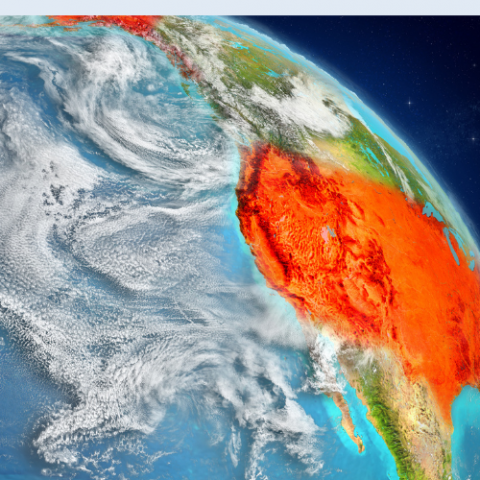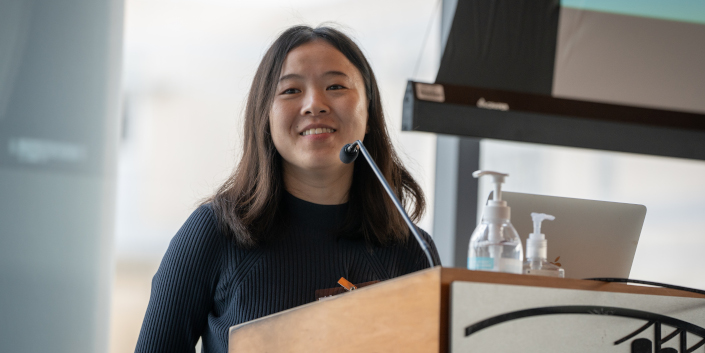
Excerpted from the story "The AI Revolution is Upon Us—And UC San Diego Researchers Are Using it to Inform Climate Action" published on UC San Diego Today May 2, 2023
Why is Texas experiencing extreme heat waves? And why does El Niño cause temperatures to rise across North America?
While climate studies often explore the short-range correlations that can help answer perplexing questions like these, there’s still a lot we don’t know about cause and effect on a global scale. UC San Diego computer scientist Rose Yu hopes to help change that, and believes the solutions can be found in the vast amounts of data collected by climate scientists, the volume of which has grown exponentially in recent years.
But even with the rapidly growing capabilities of advanced computing, there are so many large and complex datasets available and so many sources from which these data are derived—simulations, predictions, measurements from sensors, satellites, weather balloons and more—that finding those solutions is easier said than done. That’s part of the reason why the global climate models currently being used to predict future temperatures and weather patterns over time are extremely expensive and can take months to run.

“We want to have the results within a week, so that we can really accelerate decision-making for climate scientists,” said Yu, who is an assistant professor in the Department of Computer Science and Engineering at the Jacobs School of Engineering and the Halıcıoğlu Data Science Institute.
Ambitious? Yes. But that’s where artificial intelligence comes in. Thanks to a $3.6 million grant awarded in 2021 by the Department of Energy, Yu and two UC San Diego colleagues, Yian Ma and Lawrence Saul, have teamed up with researchers at Columbia University and UC Irvine to develop new machine learning methods that can speed up these climate models, better predict the future, and improve our understanding of climate extremes.
This work comes at a crucial time, as it becomes increasingly important that we develop an accurate understanding of how climate change is impacting our Earth, our communities and our daily lives—and how to use that newfound knowledge to inform climate action. To date, the team has published more than 20 papers in both machine learning and climate science-related journals as they continue to push the boundaries of science and engineering on this highly consequential front.
To increase the accuracy of predictions—and quantify their inherent uncertainty—the team is working on customizing algorithms to embed physical laws and first principles into deep learning models, a form of machine learning that essentially imitates the function of the human brain. It’s no small task, but it’s given them the opportunity to collaborate closely with climate scientists who are putting these machine learning methods into practical algorithms in climate modeling.
“Because of this grant, we have established new connections and new collaborations to expand the impact of AI methods to climate science,” said Yu. “We started working on algorithms and models with the application of climate in mind, and now we can really work closely with climate scientists to validate our models.”
From predicting extreme weather to enabling disaster response, Yu hopes to see these improved models make an impact on the work of other scientists across UC San Diego, where she believes interdisciplinary collaborations are the key to accelerating scientific advances. She served as one of the organizers of the Scientific Machine Learning Symposium held at UC San Diego in March, which brought together researchers and practitioners at the intersection of AI and science to discuss opportunities to use AI in their work.
“There’s a very broad interest in AI for science across campus,” said Yu, who is serving as a mentor for the Eric and Wendy Schmidt AI in Science Postdoctoral Fellowship. “It’s very important for us as engineers to understand what problems are important to the scientific field so that we’re developing tools that are actually useful for them. During the process, we also learn new challenges that can drive AI methods development. And from the domain science side, they get to learn about the recent developments in algorithms and AI, and that triggers new thoughts of potential.”

